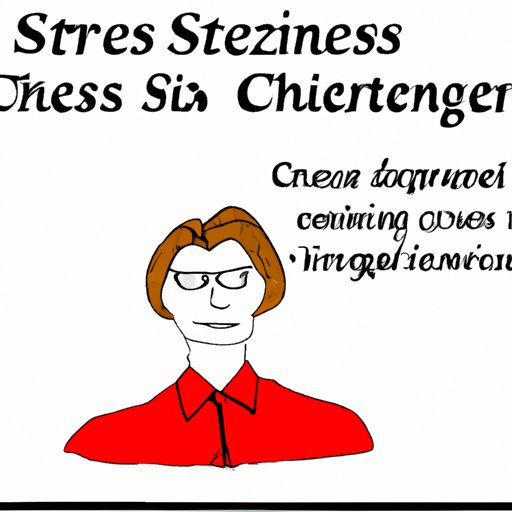
Introduction
Stress is a term we hear and use frequently in our daily lives, but it wasn’t until the 20th century that it began to be studied in scientific literature. Stress can be defined as the body’s response to a perceived threat or demand, and it can have both positive and negative effects on our health and well-being. In this article, we will explore the history of stress in scientific literature and when the term first appeared.
A Brief History of the Concept of Stress in Scientific Literature
Before stress entered scientific literature, it had already been described and studied in different contexts, such as philosophy, medicine, and psychology. The concept of stress in its modern form can be traced back to the early 20th century, when researchers began to investigate the physiological and psychological responses to challenging situations. Some of the early research that laid the foundation for the study of stress included studies on the fight-or-flight response, homeostasis, and adaptation.
Unpacking the Evolution of Stress Terminology in the Scientific Community
The terminology used to describe stress has evolved over time and has been influenced by different scientific disciplines. At first, terms such as “anxiety,” “tension,” and “strain” were used to describe the negative effects of stress. However, with the emergence of stress research, new terms such as “allostatic load,” “psychological distress,” and “burnout” were introduced. Key figures in the development of stress terminology include Walter Cannon and Hans Selye, who coined the term “stress” in its modern form.
The Emergence of Stress in Academic Discourse: A Timeline
The study of stress has a rich history that spans over a century. Significant events in the development of stress terminology and research include the publication of Walter Cannon’s “The Wisdom of the Body” in 1932, which introduced the idea of homeostasis; Hans Selye’s discovery of the General Adaptation Syndrome in 1936; and the publication of Selye’s book “The Stress of Life” in 1956, which popularized the term “stress.”
Exploring the Origins of the Term Stress in Science
The term “stress” was first used in its modern sense by Hans Selye in the 1930s. Selye defined stress as “the non-specific response of the body to any demand for change,” and he later went on to describe the General Adaptation Syndrome, which is the body’s response to stressors. The term gained popularity in scientific literature and became a widely used term to describe the physiological and psychological responses to challenging situations.
From Hans Selye to the Present Day: Tracing the Scientific History of Stress
Hans Selye played a pivotal role in the study of stress, and his research laid the foundation for future studies. Some of the key breakthroughs in stress research include the discovery of cortisol and the hypothalamic-pituitary-adrenal (HPA) axis, which are crucial components of the body’s stress response. Current areas of research in stress include epigenetics and the microbiome, which explore the interplay between stress and gene expression and the role of gut microbiota in stress regulation.

When Stress Became a Scientific Buzzword: A Deep Dive
The study of stress became mainstream in scientific literature in the second half of the 20th century, and it has since become a popular subject of study. Researchers have explored the effects of stress on various aspects of health and well-being, including mental health, cardiovascular health, and immune function. They have also investigated different interventions to mitigate the negative effects of stress, such as mindfulness-based stress reduction and cognitive-behavioral therapy.
The Birth and Growth of Stress in Scientific Literature
Stress has come a long way since its early days in scientific literature. By tracing the history and evolution of stress terminology, we can gain a better understanding of the body’s response to stress and its effects on our health and well-being. Future research on stress will continue to shed light on this complex and dynamic phenomenon and offer new interventions to promote stress resilience and mental health.
Understanding the history and evolution of stress in scientific literature can inform current research and help us mitigate the negative effects of stress on our lives.




